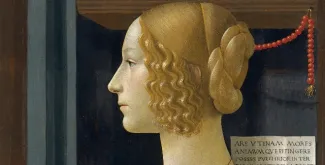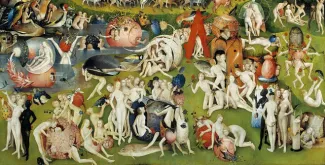Royal Observatory of Madrid
Information
The Royal Observatory of Madrid was commissioned by Charles III at the suggestion of Jorge Juan. The construction of the main building, designed by Juan de Villanueva, began in 1790 on a small hill situated beside the present day Retiro Park. At the same time the astronomer W. Herschel was commissioned to build a 60 cm diameter reflecting telescope.
The Villanueva building is home to a large library, containing numerous antique books along with a collection of instruments, such as a Repsold meridian circle dating back to 1854, a collection of precision clocks and a bronze mirror polished by W. Herschel, which can be visited. A Foucalt pendulum in the central hall illustrates the daily rotation of the earth. The rest of the collection can be seen in the Earth and the Universe Sciences Hall, where instruments of historical interest from the Observatory and from the National Geographical Institute (IGN), a dependent body since 1904, are on display.
The reconstruction of the 25-foot reflecting telescope with a diameter of 60 cm designed for the observatory at the end of the 18th century and beginning of the 19th century by the famous astronomer, William Herschel, which was destroyed in 1808 during the Napoleonic occupation, can also be visited.
Since its origins, the Royal Observatory has carried out functions in the fields of astronomy and earth sciences (solar and stellar physics, celestial mechanics, official time keeping, geodesy, cartography, geomagnetism, seismology, meteorology).
Today, it is home to the headquarters of the National Astronomical Observatory and the Central Geophysical Observatory. In recent decades, the observatory has been a pioneer in the development of radio-astronomy in Spain and its applications in astronomic and geodesic studies. The Data Reception Centre for the new national volcanic surveillance and alert service has been set up. These activities and others can be seen in the videos that will be shown during the visit.
Services
Docking Stations:
- Puerta del Ángel Caído (Avenida de Alfonso XII, 54)
- Cuesta de Claudio Moyano
- Atocha A y B (Paseo Infanta Isabel 3)
General: 5 €.
Reduced: €3 (See official website)
Children under 10: free.
Our suggestions

Thyssen-Bornemisza National Museum












